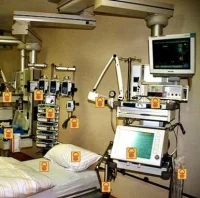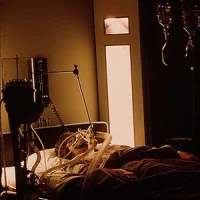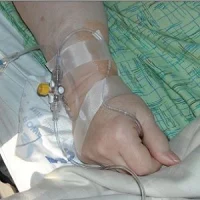Based on a study on long-term outcomes for critically ill patients requiring prolonged mechanical ventilation, a high proportion of patients survived to hospital discharge, but only half were able to be fully weaned off of the ventilator, and fewer than half of the patients were still alive at the one year mark.
Critical Care and Emergency Medicine researchers at Cooper University Hospital and Cooper Medical School of Rowan University (CMSRU) conducted a systematic review and meta-analysis of the worldwide data on long-term survival for patients who require mechanical ventilation for 14 or more days after a critical illness. The primary outcome was mortality at one year. Secondary outcomes were in-hospital mortality, discharge destination among survivors, successful liberation from mechanical ventilation while in hospital, and mortality at timepoints longer than one year.
“We have found that while the use of prolonged mechanical ventilation in a distinct population of ICU patients permits protracted survival, they often do not achieve full recovery,” says lead author Emily Damuth, MD, a Critical Care/Emergency Medicine specialist at Cooper and Assistant Professor of Medicine and Emergency Medicine at CMSRU. “The evolution of modern-day critical care has saved innumerable lives, but presents new challenges.”
The findings are reported in The Lancet Respiratory Medicine, a specialty journal of The Lancet, one of the world’s leading medical journals.
“In the United States alone approximately $35 billion is spent annually treating patients with chronic critical illness,” says Stephen Trzeciak, MD, MPH, senior author of the study and Head of Critical Care Medicine at Cooper. “Long-term survival for these patients, however, has not been fully understood. We think that the results of this study can provide useful information for ICU clinicians that can help facilitate discussions of prognosis with patients and their families.”
The next step for this line of research is to move beyond long-term survival and focus on quality of life among survivors, according to Dr. Trzeciak, also an Associate Professor of Medicine and Emergency Medicine at CMSRU. Future studies should focus on optimal patient selection for prolonged mechanical ventilation and integration of long-term quality of life information into clinical decision-making.
Source: Rowan University
Image credit: Cooper University Health Care
Critical Care and Emergency Medicine researchers at Cooper University Hospital and Cooper Medical School of Rowan University (CMSRU) conducted a systematic review and meta-analysis of the worldwide data on long-term survival for patients who require mechanical ventilation for 14 or more days after a critical illness. The primary outcome was mortality at one year. Secondary outcomes were in-hospital mortality, discharge destination among survivors, successful liberation from mechanical ventilation while in hospital, and mortality at timepoints longer than one year.
“We have found that while the use of prolonged mechanical ventilation in a distinct population of ICU patients permits protracted survival, they often do not achieve full recovery,” says lead author Emily Damuth, MD, a Critical Care/Emergency Medicine specialist at Cooper and Assistant Professor of Medicine and Emergency Medicine at CMSRU. “The evolution of modern-day critical care has saved innumerable lives, but presents new challenges.”
The findings are reported in The Lancet Respiratory Medicine, a specialty journal of The Lancet, one of the world’s leading medical journals.
“In the United States alone approximately $35 billion is spent annually treating patients with chronic critical illness,” says Stephen Trzeciak, MD, MPH, senior author of the study and Head of Critical Care Medicine at Cooper. “Long-term survival for these patients, however, has not been fully understood. We think that the results of this study can provide useful information for ICU clinicians that can help facilitate discussions of prognosis with patients and their families.”
The next step for this line of research is to move beyond long-term survival and focus on quality of life among survivors, according to Dr. Trzeciak, also an Associate Professor of Medicine and Emergency Medicine at CMSRU. Future studies should focus on optimal patient selection for prolonged mechanical ventilation and integration of long-term quality of life information into clinical decision-making.
Source: Rowan University
Image credit: Cooper University Health Care
References:
Damuth E, Trzeciak S et al. (2015) Long-term survival of critically ill patients treated with prolonged mechanical ventilation: a systematic review and meta-analysis. The Lancet Respiratory Medicine, 20 May 2015.
DOI: http://dx.doi.org/10.1016/S2213-2600(15)00150-2
Latest Articles
healthmanagement, critically ill, mechanical ventilation, Cooper University Hospital, survival, quality of life
Based on a study on long-term outcomes for critically ill patients requiring prolonged mechanical ventilation, a high proportion of patients survived to hospital discharge but fewer than half of the patients were still alive at the one year mark.










